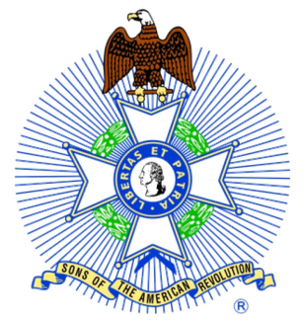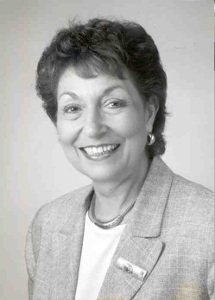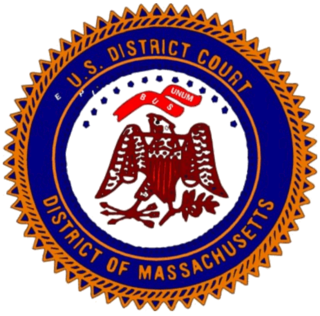
The United States presidential election of 1808 was the sixth quadrennial presidential election, held from Friday, November 4, to Wednesday, December 7, 1808. The Democratic-Republican candidate James Madison defeated Federalist candidate Charles Cotesworth Pinckney decisively. Madison's victory made him the first individual to succeed a president of the same party.

Henry Arnold Waxman is an American politician who served as the U.S. Representative for California's 33rd congressional district from 1975 until 2015. Waxman is a member of the Democratic Party. His district included much of the western part of the city of Los Angeles, as well as West Hollywood, Santa Monica and Beverly Hills, and was numbered the 24th district from 1975 to 1993, the 29th district from 1993 to 2003, and the 30th district from 2003 to 2013, changing due to redistricting after the 1990, 2000 and 2010 censuses. He now serves as Chairman at Waxman Strategies, a DC-based communications and lobbying firm, working on issues like health care, environment, energy, technology and telecommunications. In addition, he serves as a Regent Lecturer for University of California, Los Angeles, and as an advisor and lecturer at the Johns Hopkins Bloomberg School of Public Health.

William Branch Giles was an American statesman, long-term Senator from Virginia, and the 24th Governor of Virginia. He served in the House of Representatives from 1790 to 1798 and again from 1801 to 1803; in between, he was a member of the Virginia House of Delegates, and was an Elector for Jefferson in 1800. He served as United States Senator from 1804 to 1815, and then served briefly in the House of Delegates again. After a time in private life, he joined the opposition to John Quincy Adams and Henry Clay, in 1824; he ran for the Senate again in 1825, and was defeated, but appointed Governor for 3 one-year terms in 1827; he was succeeded by John Floyd, in the year of his death.

The National Security Archive is a 501(c)(3) non-governmental, non-profit research and archival institution located on the campus of the George Washington University in Washington, D.C. Founded in 1985 to check rising government secrecy, the National Security Archive is an investigative journalism center, open government advocate, international affairs research institute, and is the largest repository of declassified U.S. documents outside the federal government. The National Security Archive has spurred the declassification of more than 10 million pages of government documents by being the leading non-profit user of the U.S. Freedom of Information Act (FOIA), filing a total of more than 50,000 FOIA and declassification requests in its over 30 years of history.

The Committee on Oversight and Reform is the main investigative committee of the United States House of Representatives.

The National Society of the Sons of the American Revolution is an American congressionally chartered organization, founded in 1889 and headquartered in Louisville, Kentucky. A non-profit corporation, it has described its purpose as maintaining and extending "the institutions of American freedom, an appreciation for true patriotism, a respect for our national symbols, the value of American citizenship, [and] the unifying force of 'e pluribus unum' that has created, from the people of many nations, one nation and one people."

Executive Order 13233 limited access to the records of former United States Presidents to a higher degree than the previous Order 12667, which it superseded. It was drafted by then White House Counsel Alberto Gonzales and issued by George W. Bush on November 1, 2001. Section 13 of Order 13233 revoked Executive Order 12667 which was issued by Ronald Reagan on January 18, 1989.

Judith Fingeret Krug was an American librarian, freedom of speech proponent, and critic of censorship. Krug became director of the Office for Intellectual Freedom at the American Library Association in 1967. In 1969, she joined the Freedom to Read Foundation as its executive director. Krug co-founded Banned Books Week in 1982.

Carla Diane Hayden is an American librarian and the 14th Librarian of Congress. Hayden is the first woman and the first African American to hold the post. She is the first professional librarian appointed to the post in over 60 years.
Intellectual freedom encompasses the freedom to hold, receive and disseminate ideas without restriction. Viewed as an integral component of a democratic society, intellectual freedom protects an individual's right to access, explore, consider, and express ideas and information as the basis for a self-governing, well-informed citizenry. Intellectual freedom comprises the bedrock for freedoms of expression, speech, and the press and relates to freedoms of information and privacy.

In United States of America v. Aaron Swartz, Aaron Swartz, an American computer programmer, writer, political organizer and Internet activist, was prosecuted for many violations of the Computer Fraud and Abuse Act of 1986 (CFAA), after downloading a great many academic journal articles through the MIT computer network from a source (JSTOR) for which he had an account as a Harvard research fellow. Facing trial and the possibility of imprisonment, Swartz committed suicide, and the case was consequently dismissed.

James R. Rettig is an American librarian and educator. He graduated with his Master's degree in English from Marquette University and a master's in library science from the University of Wisconsin-Madison.












